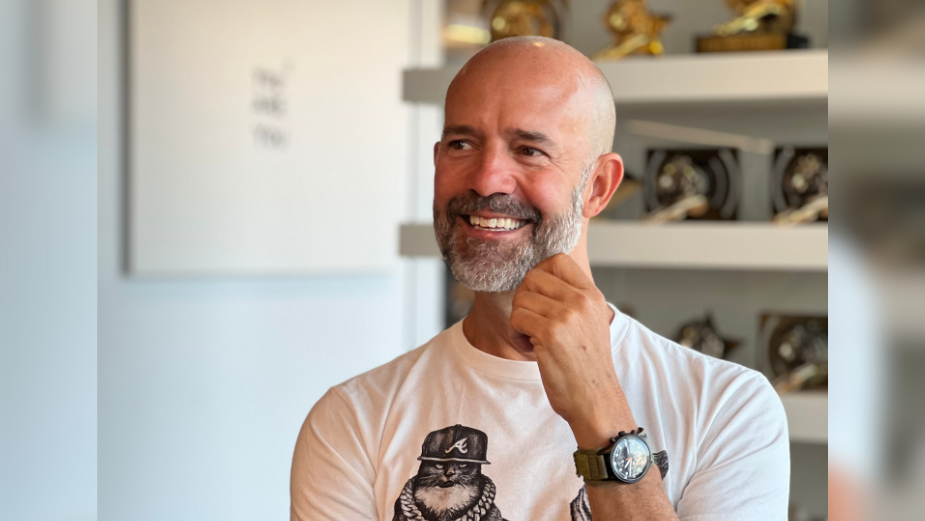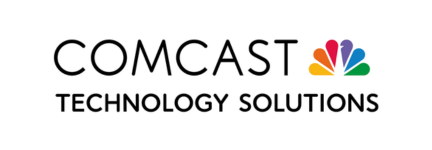
Content That Connects: Greg Lotus on Helping Brands Walk the Red Carpet

Any piece of content for a brand means little if it never manages to connect with its target audience, a statement to ponder in this new interview series from Comcast Technology Solutions and Little Black Book.
Over the course of this series, we’ll be speaking to some of advertising’s most respected production leaders to delve into how emerging themes in production, such as data-fuelled production, more lo-fi shooting technology, remote filming, and evolving feelings towards the value of production all feed into creating content that matters to customers and works for brands.
Today, LBB’s Adam Bennett is speaking with Greg Lotus, global head of production at VMLY&R. With over two decades of production experience to draw upon, Greg is perfectly positioned to offer insights on the industry’s present - and its future. However, in spite of the constantly-changing and fragmenting industry landscape, Greg knows that there are certain production skills which remain evergreen and relevant. Here, he reflects on how those skills are making the most out of data, what makes craft such an essential part of his role, and why AI isn’t quite the “demon” it’s made out to be…
LBB> Greg, let’s start at the beginning. What first attracted you to a career in production, and what’s the most enjoyable aspect of your role today?
Greg> Honestly, it took me a while to discover production as a career path. I don’t think a high school guidance counsellor has ever suggested “producer” to someone, but I wish they had.
In retrospect, I think the core of who a producer is and characteristics that makes them successful fits with what I’ve learned about myself. I love a challenge – tell me something can’t be done and I will obsessively look for ways to prove you wrong. I love art, cinema, craft and I love to make things and I want to take pride in the things that I’ve helped make. And I love to work with creatively talented people, with the way they see things and that joy of collaboration.
Even with the most difficult productions the things I remember are about the people and fun we had as a team. There is joy and reward in creating, and finding the solution to the puzzle. I think the most enjoyable thing for me now is to be able to share my experience, guidance, or perspective with producers and creative teams to help bring ideas to life.
There is always a puzzle to solve; and I looove a good puzzle. Sometimes, I think the only reason I keep a NYT subscription is for the crossword.
LBB> Your journey in the world of production began in the 90s. Before we talk about what’s changing, are there any aspects of the industry, or producers’ role within it, that have remained the same?
Greg> Ha! Not that I’m old or anything! All the things that I think make a great producer are still, and maybe even more now, extremely valuable. Taking the steering wheel and guiding the group and project in a collaborative way, finding solutions to seemingly impossible challenges, keeping everything on track and ensuring the highest level of creative execution… These are all things that were important then as now.
It’s even more exciting now with the variety in types of production, but the core of a great producer is the same: Find a way to get to the goal line. I’ve learned that great creatives respect and value great producers, because they know that a great producer can take a good idea and bring it to the next level.
LBB> In your opinion, what kind of role does production play in making an idea connect with its audience?
Greg> I’d say first, understand the audience and what resonates with them. As a producer I like to ask a lot of questions. Not just of the creatives about their vision for the work, but I also want to understand the brief, strategy, and media too. Putting together the right group of production partners and understanding the deliverables is imperative. A narrative is a lot easier with a :60, but if the majority of the media is a :15, assets for social, or experiential, those can be even more important to deliver an effective campaign.
LBB> And is that role evolving in the age of fragmented media?
Greg> Fragmented, maybe even splintered…so many platforms and so many pieces to deliver. Production has to be agile and efficient, which requires producers to have the knowledge, experience, and ability to produce in many ways, faster and cheaper.
The producer needs to be brought in at the beginning with Strategy and Creative to have the biggest impact. Again, the heart of that role remains the same, finding ways to execute at a high level with the variables you’re given. Stay curious, look for new ways to get the job done, dig for answers to questions that you don’t know - I’m the first to say “I don’t know, but I’ll find out”. And realise that it takes a solid collaborative team to manage a multi-headed hydra of deliverables.
LBB> To what extent can data be leveraged to improve production and the impact of the content?
Greg> Data can be a reference to so many things: who your audience is, where they are, and what they are interested in.
We have a client that we pitched and won the business based on the data and analytics we presented of their target audience. Since winning that business we have crafted film content that has exceeded all of their KPIs year over year. Data not only gives us insight on what to make and where to put it, but also informs us on how it’s performing and what changes can make it more effective. Content is becoming more customised and targeted, and we’re seeing more “super shoots” and bundling to deliver for all the touchpoints of a campaign.
LBB> In this constantly shifting media environment, how would you articulate the value of production - or craft - to a brand?
Greg> It’s a great question and one that is very hard to quantify to clients. I’ve made presentations to clients that focus on “production value” specifically. It has always amazed me that a client might have an $80 million media budget but only $250 thousand for production of content. My analogy has been, “you’re paying all this money to get on the red carpet for millions of people to see you, why not put on a designer dress.”
Not that great content can’t be achieved with small budgets, but would another couple hundred thousand really affect the media budget? I can show you the difference between the productions and how just a relatively little more money put into the content can make a huge difference. If you’re paying for people to look, make sure you look amazing.
LBB> What is an example of a recent project that required the production department to solve a particularly tricky or interesting problem?
Greg> Just one?! Well, there was that whole pandemic thing that happened and every producer had someone panicking with the question, “how are we going to…..?”. I think producers on the agency and vendor side were stars, and found ways to produce in the most challenging circumstances - coming through in the clutch with some amazing work.
There are “tricky or interesting” problems seemingly every day, and it’s not just producers figuring them out. My head of business affairs Stacy Kallan and her team has pulled us out of some difficult situations, too. It’s always a team effort with production, creative, and client engagement when things get complicated.
LBB> Broadly speaking, where should companies be investing in the production process in order to drive the best value and output?
Greg> A broad general answer would be to invest more in junior talent. I don’t think agency production groups have trained and invested in our apprentices enough. Everyone wants and needs experienced producers, even for the small budget content, but scoping and funding hasn’t been there to build the bottom rungs of the ladder.
A more concrete specific answer would be to continue to build capabilities internally. There is plenty of work for all of our brothers and sisters on the vendor side, and there is also a ton of opportunity for our consolidated agency production partners. Internally we can deliver great work effectively and efficiently, using shrinking budgets to their greatest impact.
LBB> Finally, can you tell us one thing that you believe we are certain to have in store for the future of production?
Greg> Damn, I really thought I was going to get through this without mentioning AI! But since it seems to come up at least a half dozen times a day, my chatbot is forcing me to.
The fear and anxiety created by AI is no surprise, but I don’t think it’s the demon that will end everyone’s career. It’s a tool and it will change how things get done, just like Photoshop did in the old days (which apparently is the 1990s). People thought art directors were done, but Photoshop became a tool that created new and different ways to express creativity and I can’t imagine a world without it now.
I can’t see AI taking over, but it will change how we strategize, create, produce and ultimately collaborate.















